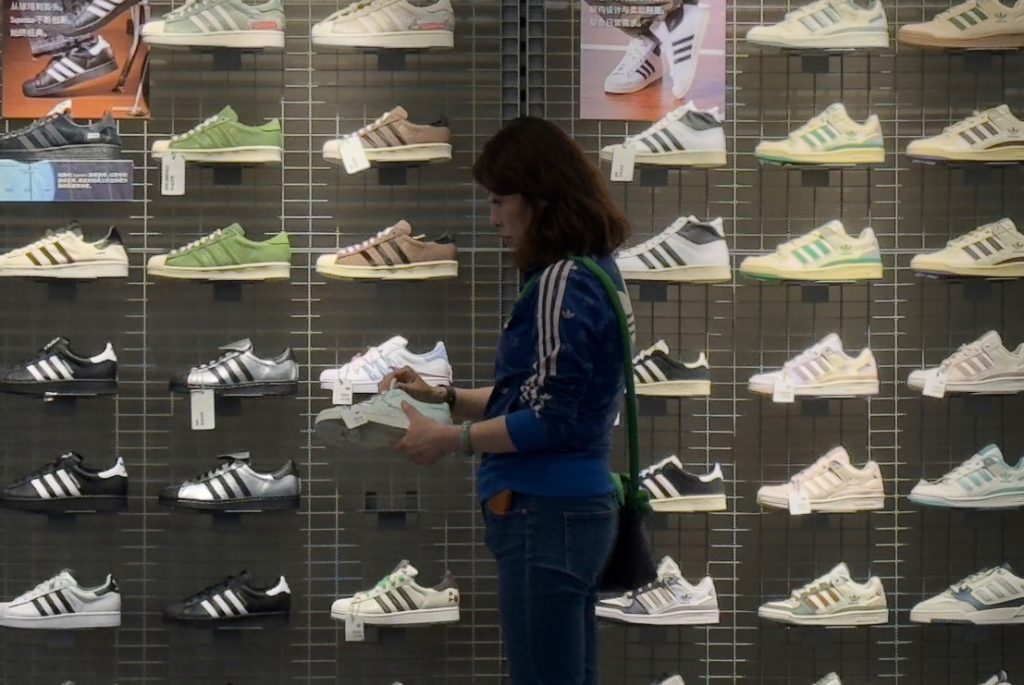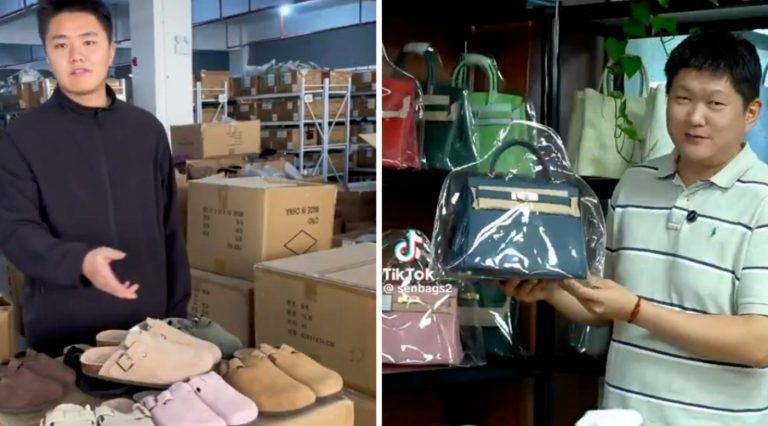In a surprising turn of events that has sent ripples through the global retail industry, Chinese factories have reportedly taken over the US TikTok market, flooding it with “brandless” replicas of luxury goods like Chanel and Louis Vuitton, all at a fraction of the original price. This phenomenon has not only captured the attention of consumers but also raised questions about the future of luxury brands and the impact on the global economy.
Chinese Factories Dominate US TikTok Market

reports indicate that Chinese factories have capitalized on the booming TikTok market in the United States, leveraging the platform’s vast user base to sell knockoff versions of high-end luxury goods. These replicas, often indistinguishable from the originals, are being sold at prices that are a mere tenth of the genuine articles.
The strategy has proven to be highly effective, with many consumers turning to TikTok to find these affordable alternatives. The platform’s algorithm-driven content delivery system has made it easier than ever for these factories to reach a wide audience, bypassing traditional retail channels and cutting costs significantly.
The Rise of ‘Brandless’ Luxury Goods
The term “brandless” has emerged as a descriptor for these knockoff products, which are sold without the official branding of the luxury brands they imitate. This approach allows sellers to avoid legal repercussions while still capitalizing on the demand for luxury goods. Consumers, in turn, are drawn to the affordability and accessibility of these products, often viewing them as a more budget-friendly alternative to the real thing.
The trend has been particularly pronounced in the fashion and accessories sectors, with items such as handbags, watches, and clothing being sold at unprecedented discounts. The allure of owning a luxury item at a fraction of the cost has proven irresistible to many, leading to a surge in sales and a growing market for these “brandless” goods.
Implications for the Luxury Market
The rise of these Chinese factories and their dominance in the US TikTok market has significant implications for the luxury goods industry. Established brands like Chanel and Louis Vuitton are facing unprecedented competition from these knockoff products, which are eroding their market share and challenging their brand exclusivity.
Luxury brands have long relied on their reputation and exclusivity to command high prices and maintain consumer loyalty. The emergence of “brandless” goods sold at a fraction of the cost threatens to undermine this model, potentially leading to a shift in consumer behavior and a reevaluation of the value placed on luxury brands.
Conclusion
The takeover of the US TikTok market by Chinese factories selling “brandless” luxury goods at bargain prices is a phenomenon that has far-reaching consequences. It highlights the evolving nature of consumer behavior in the digital age and the challenges faced by traditional luxury brands in maintaining their market dominance.
As the trend continues to grow, it remains to be seen how luxury brands will respond and adapt to this new reality. The future of the luxury goods industry may well be shaped by the ongoing battle between brand exclusivity and the allure of affordable alternatives.
Copy
Retry
Share
Ask Anything…
Online
Thinking (k1.5)

